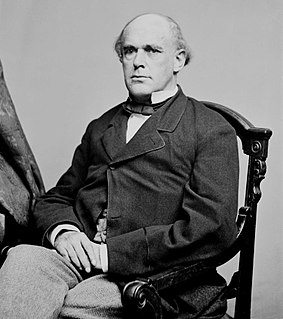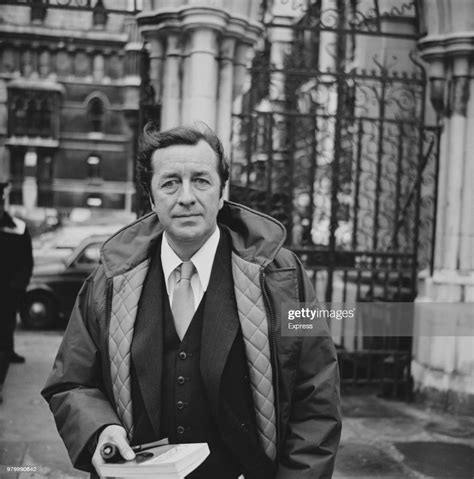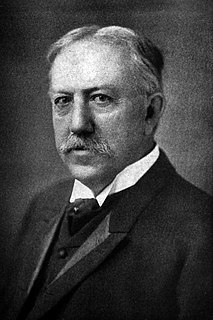A Quote by Salmon P. Chase
The law of the Creator, which invests every human being with an inalienable title to freedom, cannot be repealed by any interior law which asserts that man is property.
Related Quotes
Canon law pertains to Catholics. Jewish law pertains only to Jews. But the sharia dictates every basic aspect of human life, asserts its authority over non-Muslims, unlike Jewish law and unlike canon law, which is why they're slaughtering Christians, they're slaughtering secular Muslims across the Muslim world.
The very idea of freedom presupposes some objective moral law which overarches rulers and ruled alike. Subjectivism about moral values is eternally incompatible with democracy. We and our rulers are of one kind only so long as we are subject to one law. But if there is no Law of Nature, the ethos of any society is the creation of its rulers, educators and conditioners; and every creator stands above and outside his own creation.
Thirdly, the supreme power cannot take from any man any part of his property without his own consent: for the preservation of property being the end of government, and that for which men enter into society, it necessarily supposes and requires, that the people should have property, without which they must be supposed to lose that, by entering into society, which was the end for which they entered into it; too gross an absurdity for any man to own.
Conscience is the most sacred of all property; other property depending in part on positive law, the exercise of that being a natural and unalienable right. To guard a man's house as his castle, to pay public and enforce private debts with the most exact faith, can give no title to invade a man's conscience, which is more sacred than his castle, or to withhold from it that debt of protection for which the public faith is pledged by the very nature and original conditions of the social pact.
Only a law-order which holds to the primacy of God's law can bring forth true freedom, freedom for justice, truth, and godly life. Freedom as an absolute is simply an assertion of man's "right" to be his own god; this means a radical denial of God's law-order. "Freedom" thus is another name for the claim by man to divinity and autonomy. It means that man becomes his own absolute.
We hold that the ownership of private property is the right and privilege of every American citizen and is one of the foundation stones upon which this nation and its free enterprise system has been built and has prospered. We feel that private property rights and human rights are inseparable and indivisible. Only in those nations that guarantee the right of ownership of private property as basic and sacred under their law is there any recognition of human rights.
The physiological law of Transfer of Energy is the basis of human success and happiness. There is no action without expenditure of energy, and if energy be not expended the power to generate it is lost. This law shows itself in a thousand ways in the life of man. The arm which is not used becomes palsied. The wealth which comes by chance weakens and destroys. The good which is unused turns to evil. The charity which asks no effort cannot relieve the misery she creates.
There exists a law, not written down anywhere but inborn in our hearts; a law which comes to us not by training or custom or reading but by derivation and absorption and adoption from nature itself; a law which has come to us not from theory but from practice, not by instruction but by natural intuition. I refer to the law which lays it down that, if our lives are endangered by plots or violence or armed robbers or enemies, any and every method of protecting ourselves is morally right.
MORAL LAW, Evidence of.- Man has been subjected by his Creator to the moral law, of which his feelings, or conscience as it is sometimes called, are the evidence with which his Creator has furnished him. ... The moral duties which exist between individual and individual in a state of nature, accompany them into a state of society ... their Maker not having released them from those duties on their forming themselves into a nation.
[A] republic . . . [is] a government, in which the property of the public, or people, and of every one of them was secure and protected by law . . . implies liberty; because property cannot be secured unless the man be at liberty to acquire, use or part with it, at his discretion, and unless he have his personal liberty of life and limb, motion and rest, for that purpose.


































